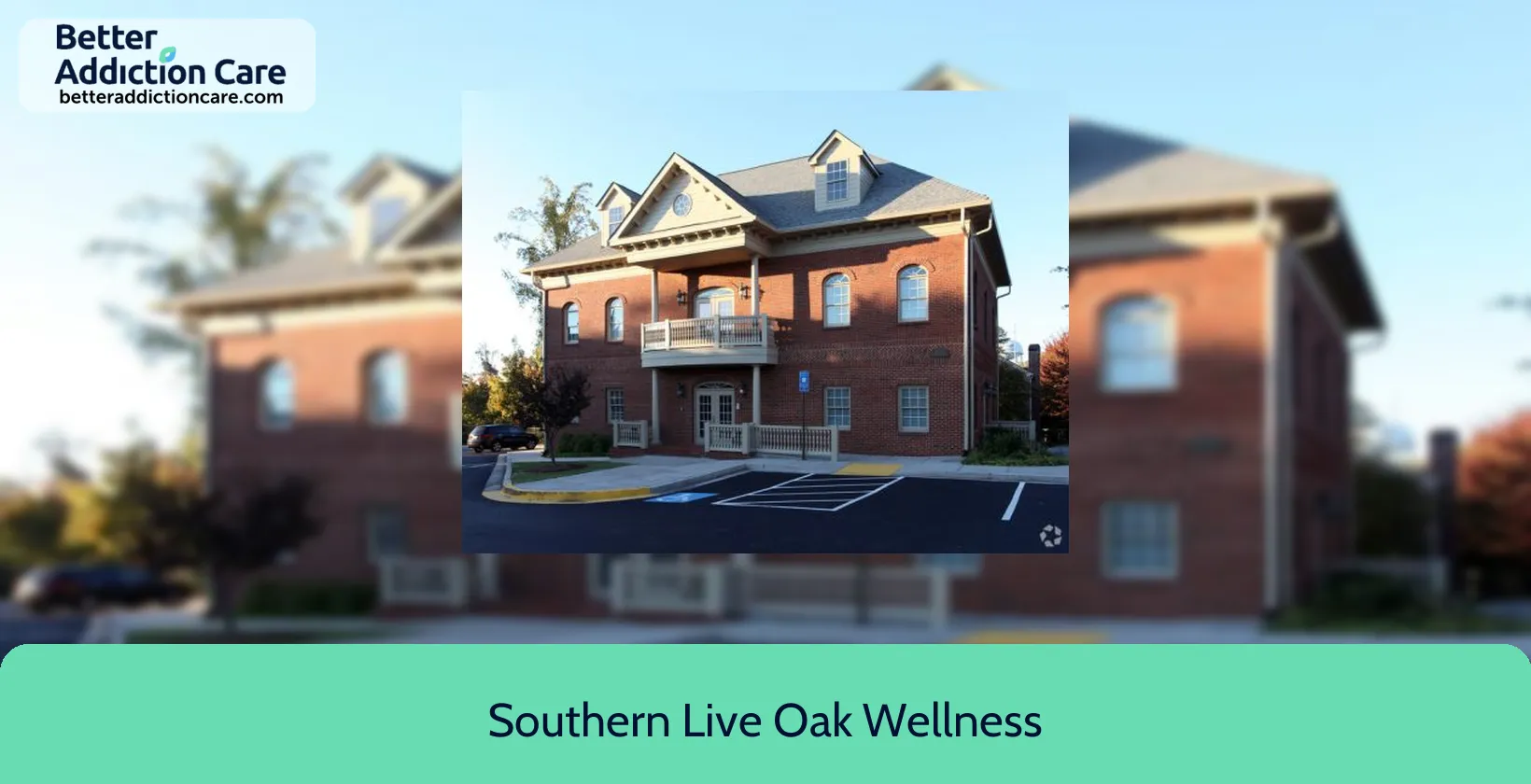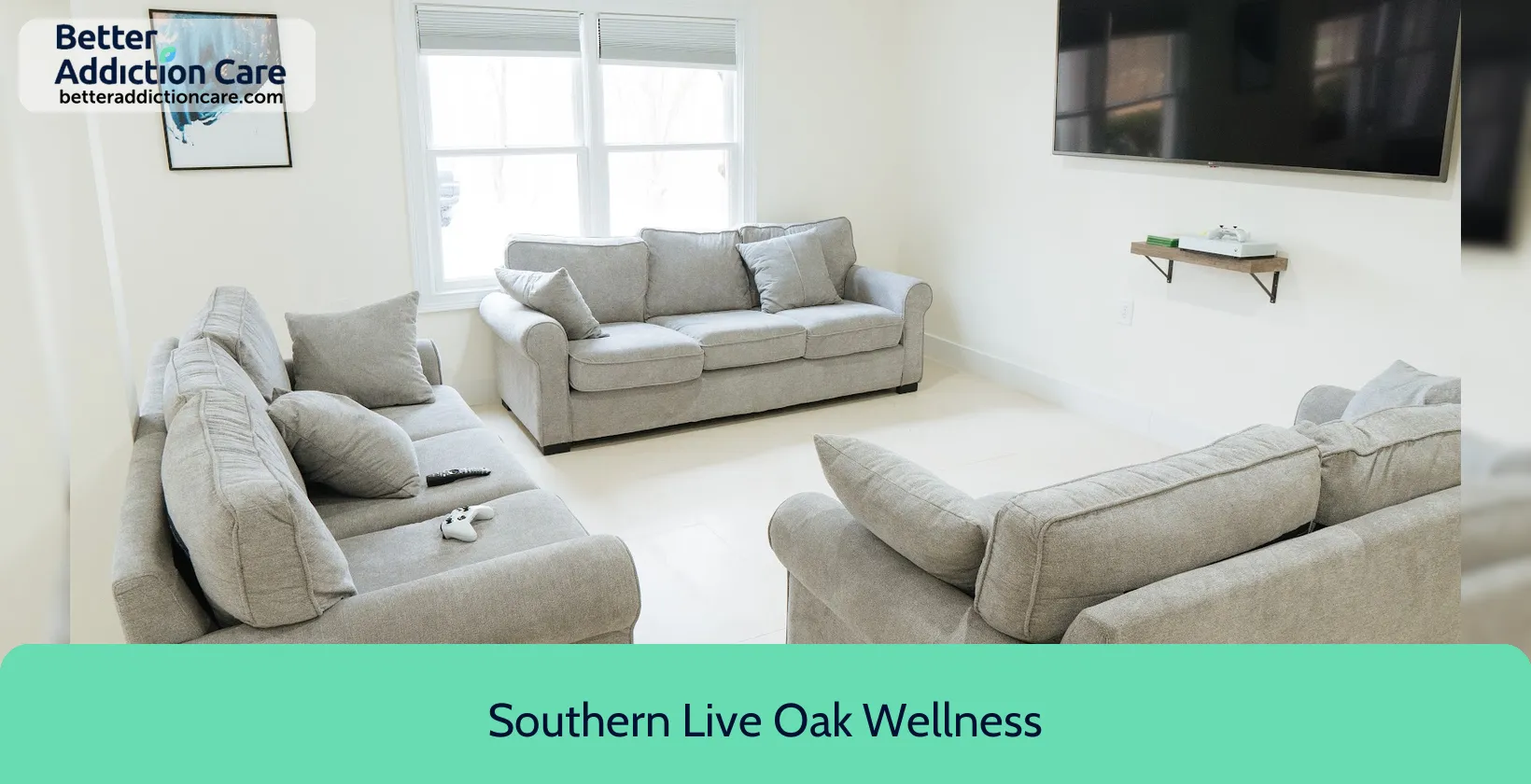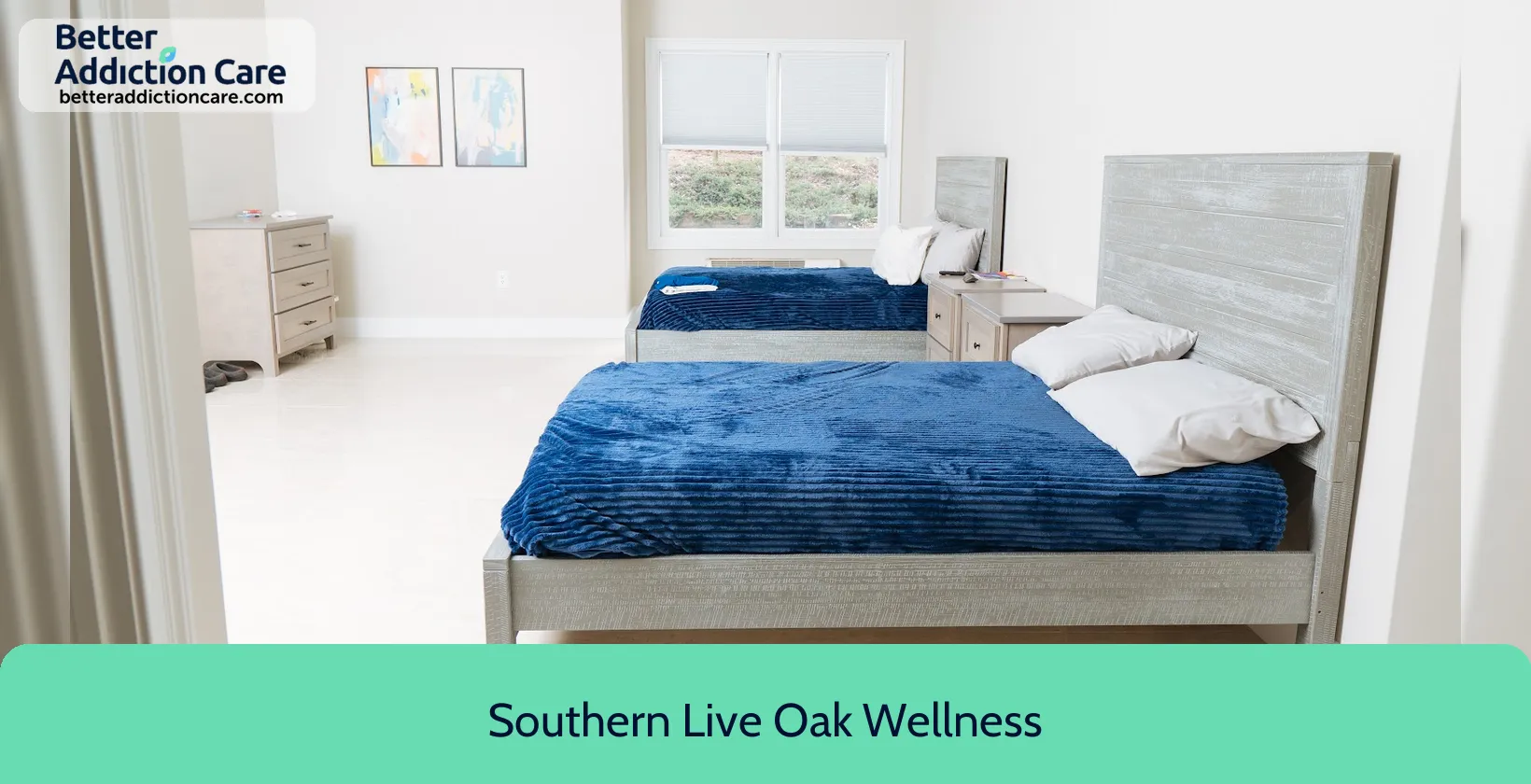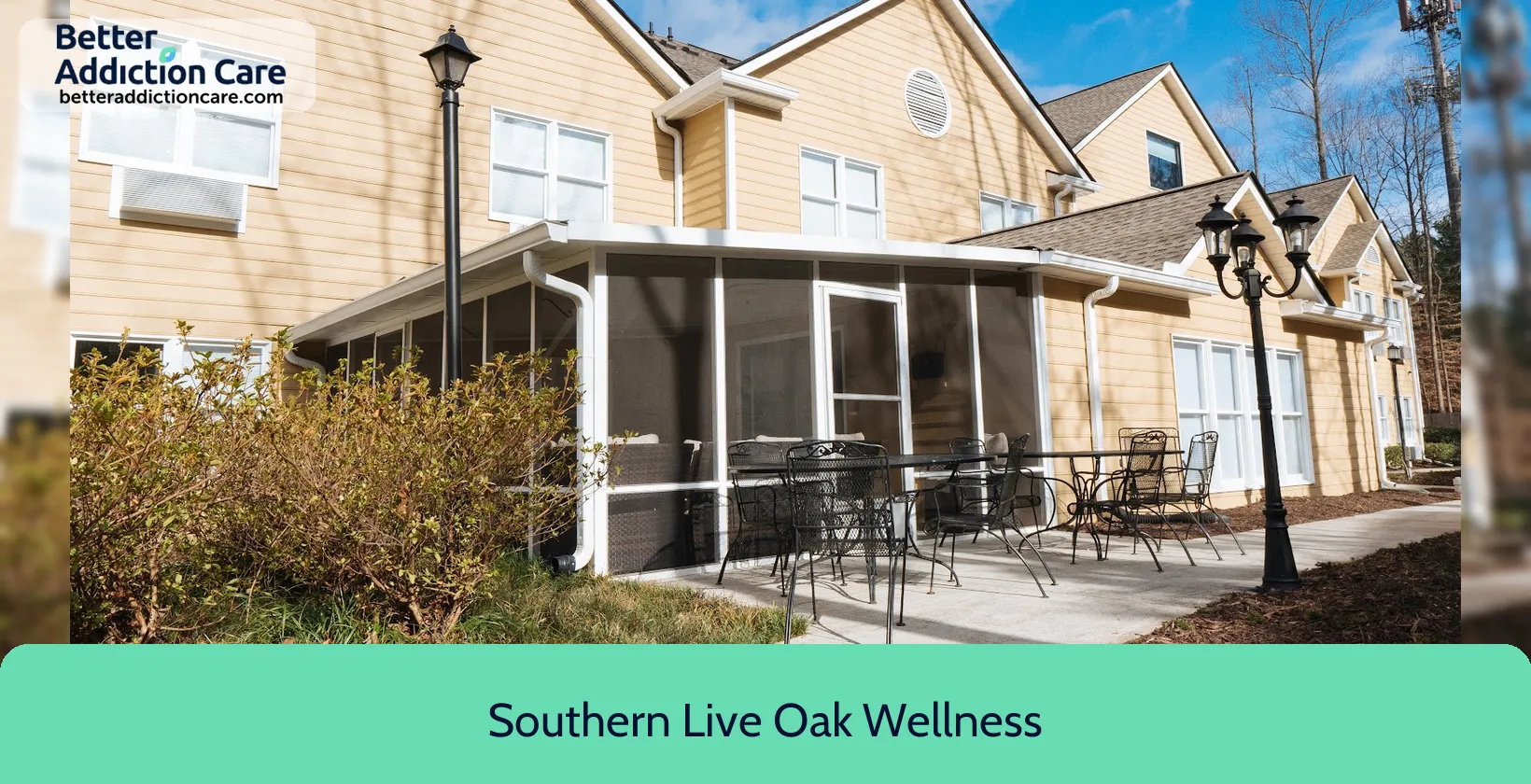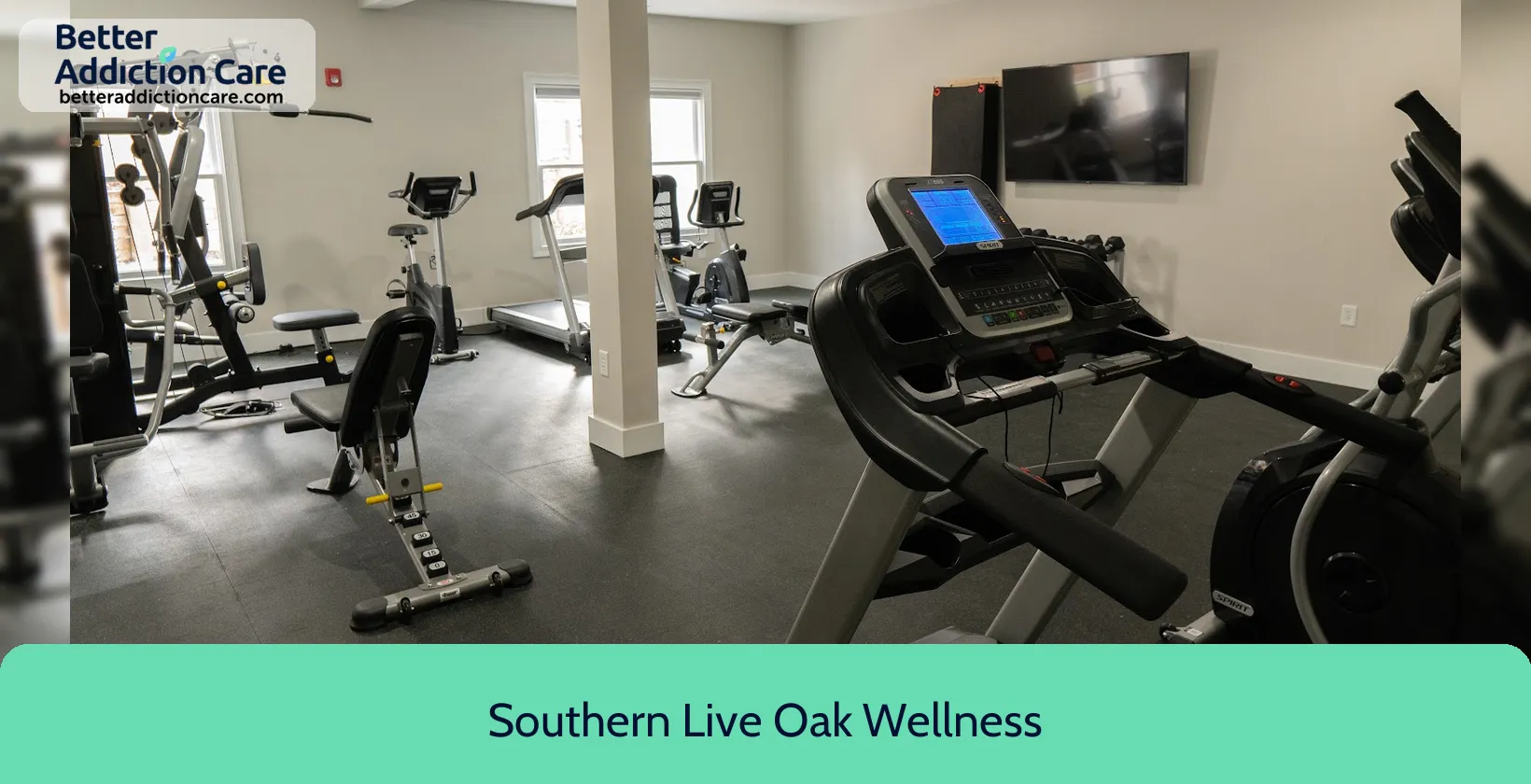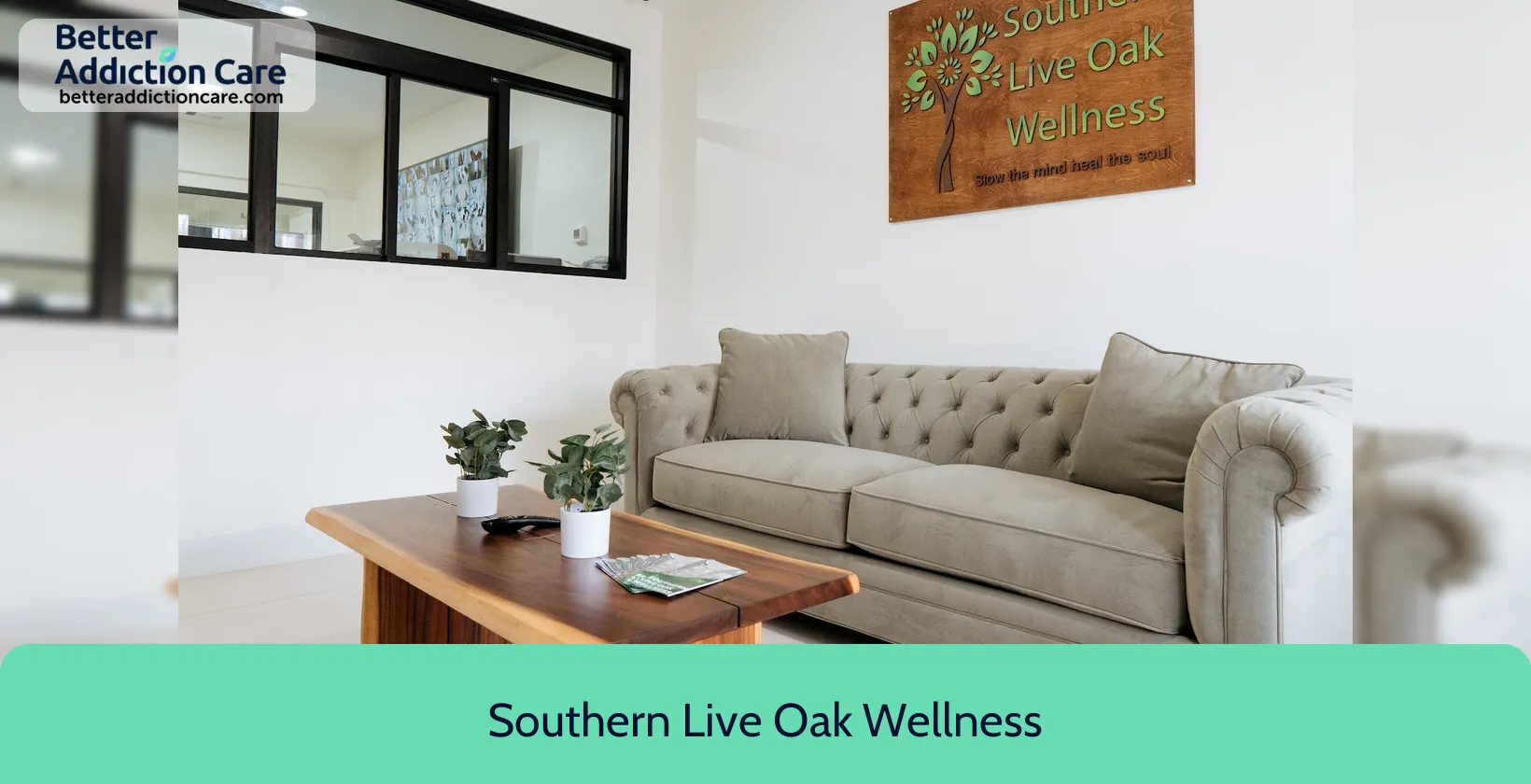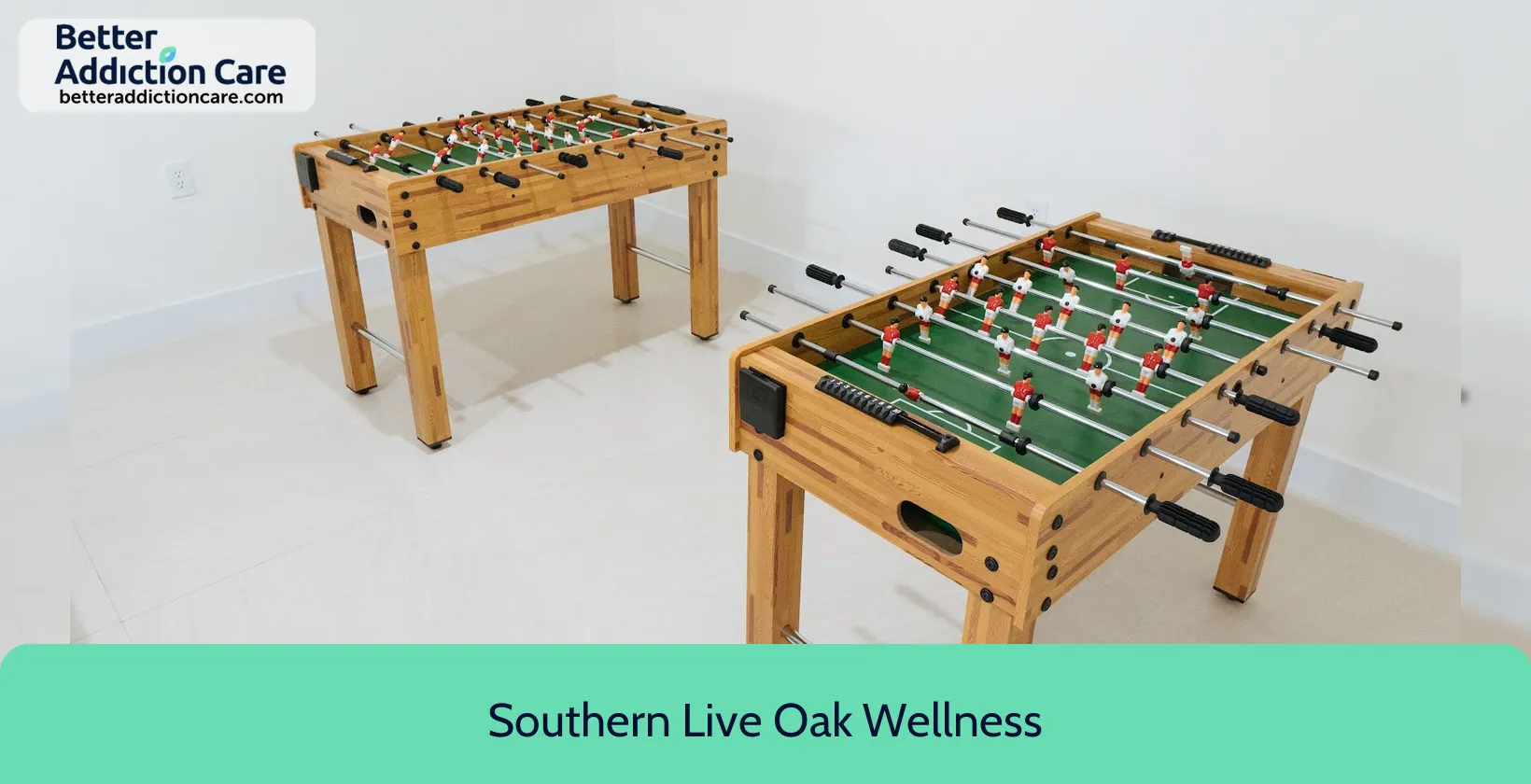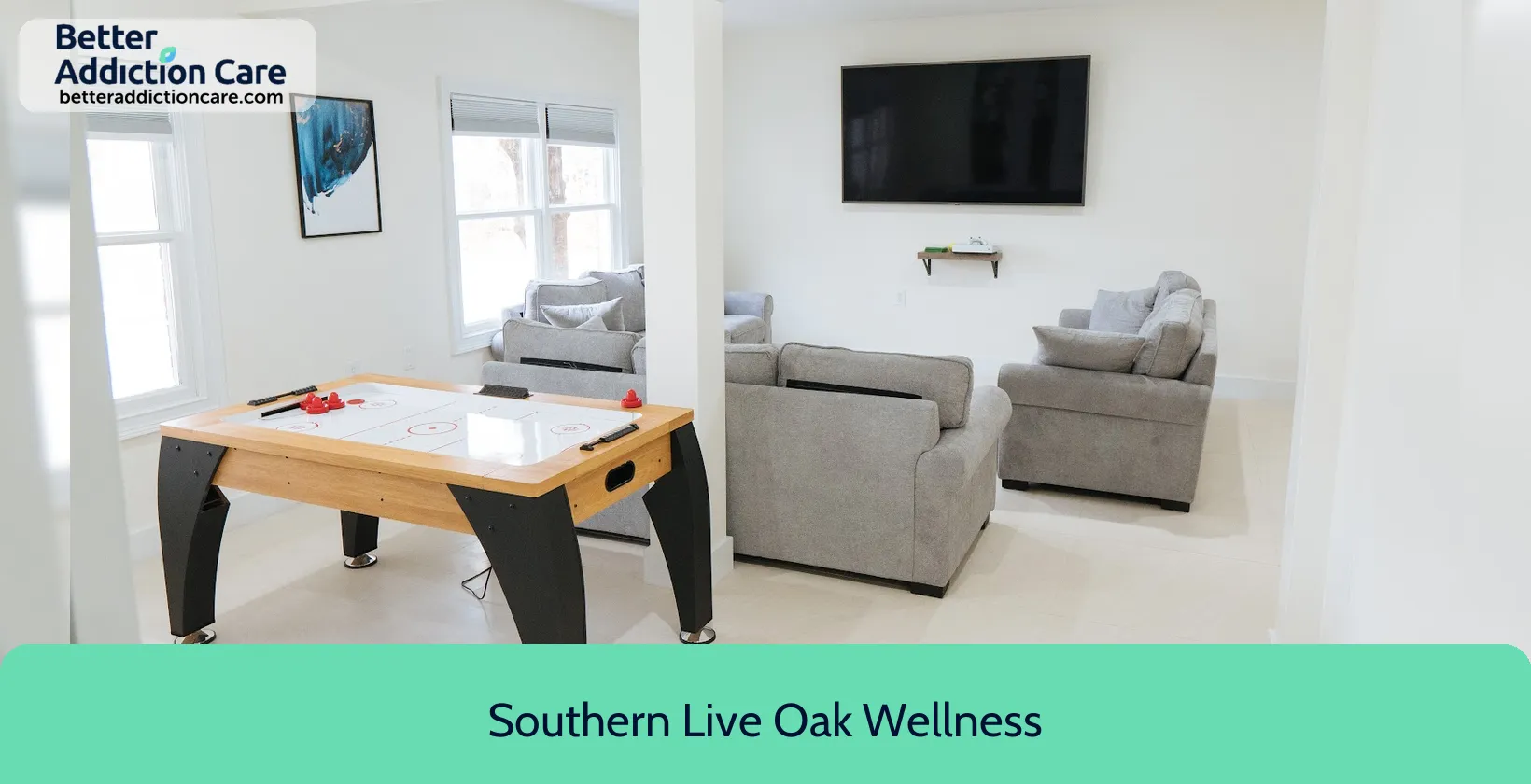Southern Live Oak Wellness
Overview
Southern Live Oak Wellness, located in Atlanta, Georgia, offers comprehensive treatment for various mental health conditions, including depression and anxiety. Their services include a residential treatment program where patients typically stay for 4 to 6 weeks. Following the residential program, patients may transition to either a Partial Hospitalization Program (PHP) or an Intensive Outpatient Program (IOP).
The PHP is designed for patients requiring more intensive care than an outpatient setting can provide, offering a variety of therapeutic modalities. The IOP, on the other hand, provides daily or weekly therapy sessions, with patients attending a 3-hour program either three or five days a week. In all programs, patients receive care from a therapist and have appointments with a psychiatrist as needed.
Southern Live Oak Wellness employs a range of evidence-based therapies, including Dialectical Behavior Therapy (DBT), Cognitive Behavioral Therapy (CBT), Eye Movement Desensitization and Reprocessing (EMDR), brain mapping, and Transcranial Magnetic Stimulation (TMS) Therapy. They also offer medication stabilization and Spravato as part of their comprehensive treatment approach.
Southern Live Oak Wellness at a Glance
Payment Options
- Cash or self-payment
- Private health insurance
Assessments
- Screening for tobacco use
- Comprehensive mental health assessment
- Comprehensive substance use assessment
Age Groups
- Seniors or older adults
- Young adults
- Adults
- Seniors
Ancillary Services
- Case management service
- Diet and exercise counseling
- Education services
- Family psychoeducation
- Suicide prevention services
Highlights About Southern Live Oak Wellness
6.68/10
With an overall rating of 6.68/10, this facility has following balanced range of services. Alcohol Rehabilitation: 8.00/10, Drug Rehab and Detox: 6.00/10, Insurance and Payments: 6.00/10, Treatment Options: 6.73/10.-
Alcohol Rehabilitation 8.00
-
Treatment Options 6.73
-
Drug Rehab and Detox 6.00
-
Insurance and Payments 6.00
Treatment At Southern Live Oak Wellness
Treatment Conditions
- Alcoholism
- Mental health treatment
- Substance use treatment
- Co-occurring Disorders
Care Levels
- Hospital inpatient treatment
- Partial Hospitalization Program
- Outpatient
Treatment Modalities
- Couples/family therapy
- Group counseling
- Cognitive behavioral therapy
- Dialectical behavior therapy
- Integrated Mental and Substance Use Disorder treatment
Ancillary Services
Additional Services
- Pharmacotherapies administered during treatment
- Mentoring/peer support
- HIV testing
Special Programs
- Clients with co-occurring mental and substance use disorders
- Criminal justice (other than DUI/DWI)/Forensic clients
- Clients with HIV or AIDS
- Clients who have experienced trauma
- Persons 18 and older with serious mental illness (SMI)
Get Help Now
Common Questions About Southern Live Oak Wellness
Contact Information
Other Facilities in Atlanta

7.00

6.75

6.65

6.71

6.89

6.65

6.97

6.95
DISCLAIMER: The facility name, logo and brand are the property and registered trademarks of Grady Behavioral Health Center - Grady Health Systems, and are being used for identification and informational purposes only. Use of these names, logos and brands shall not imply endorsement. BetterAddictionCare.com is not affiliated with or sponsored by Grady Behavioral Health Center - Grady Health Systems.
